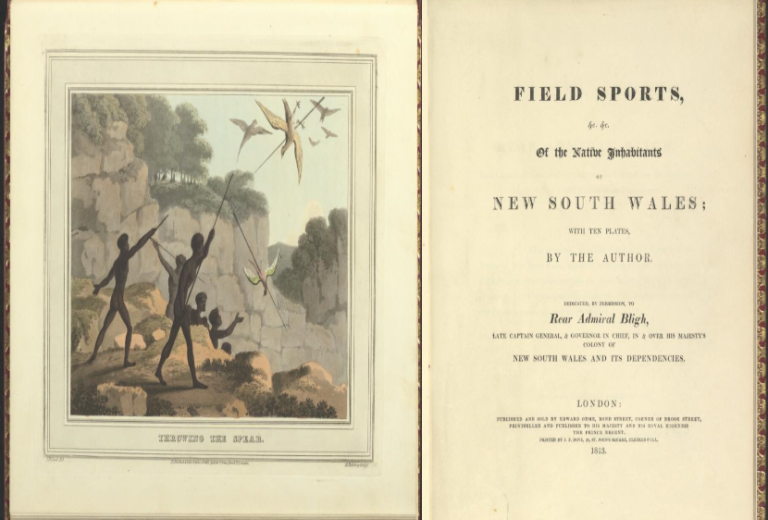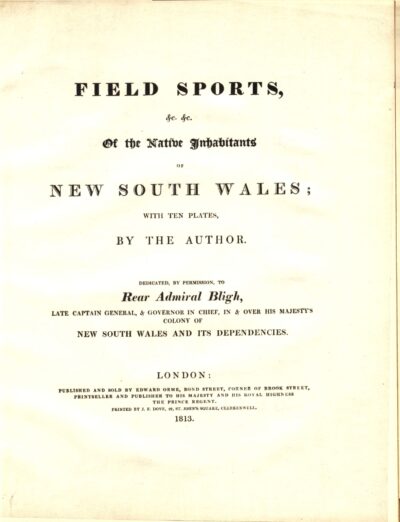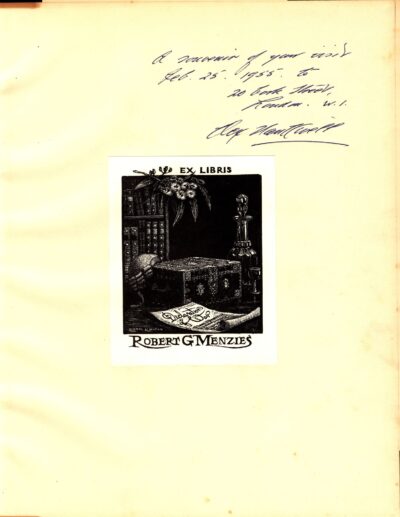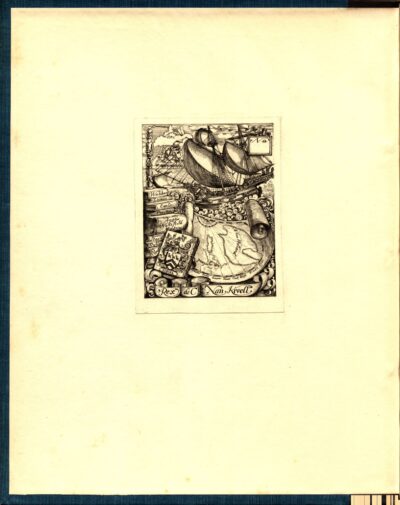John Heaviside Clark, Field Sports of the Native Inhabitants of New South Wales, 1813
John Heaviside Clarke was a Scottish-born painter and engraver, most known for his engravings of Scottish towns and cities, and for sketches he made of the battlefield of Waterloo. Born in 1771, his most productive days were those spent in London between 1802-1832, during which time he earned the honour of having some of his landscapes and seascapes exhibited at the Royal Academy.
Field Sports was the first book ever published concerning Indigenous Australians’ life and customs. The book features text and illustrations, purportedly by Clark, however he is not known to have ever visited Australia and thus must have been working off of sketches provided by others. Despite this second-hand nature, and other potential limitations of accuracy, the book is still valuable for the insights it provides on Indigenous culture and people just two-decades into European settlement. A particularly poignant passage records a chief named ‘Harry’, having been told off for carrying a torch near some stacks of corn, calmly telling a settler of Parramatta ‘You know we must have our fire; the country is ours, you must take care of your corn’ – a brave declaration of Indigenous ownership of the land.
Menzies’s copy of the book was a gift from Rex Nan Kivell, given during a visit to the latter’s gallery in London in 1955. Born in Christchurch New Zealand in 1898 and briefly serving in the ANZAC forces, Nan Kivell spent the majority of his life as an art dealer and collector in England. Fascinated by the Pacific region of his birth, he amassed a vast and unique collection of books, manuscripts, maps, paintings, prints and other items relating to the exploration of the Pacific and the early British settlement of Australia and New Zealand. It includes among other things letters of Captain Cook, Joseph Banks, William Bligh, Charles Darwin, and Thomas Brisbane, as well as original maps from the age of exploration.
The indispensable value of this collection was recognised such that by 1946 discussions began to lend out significant sections of it to the Commonwealth National Library (later renamed the National Library of Australia). It was the Menzies Government which successfully managed to convince Nan Kivell to sell his entire collection to the NLA in 1959, a significant coup considering none of it ended up going to his homeland of New Zealand, and the government paid a tiny fraction of what the collection was worth. Supplemented with further items Nan Kivell sourced throughout the rest of his life, the collection stands at over 16000 pieces, including some 5000 books, and it is one of the most historically and culturally important collections in all of Australia.
Though he never actually visited Australia, Nan Kivell was made a CMG in 1966 on the recommendation of the Australian government and later knighted. Menzies’s copy of Field Sports is thus an artefact of an intimate and friendly relationship between the Prime Minister and the benefactor, and one which produced this magnificent transaction.
You might also like...
Sign up to our newsletter
Sign up for our monthly newsletter to hear the latest news and receive information about upcoming events.






